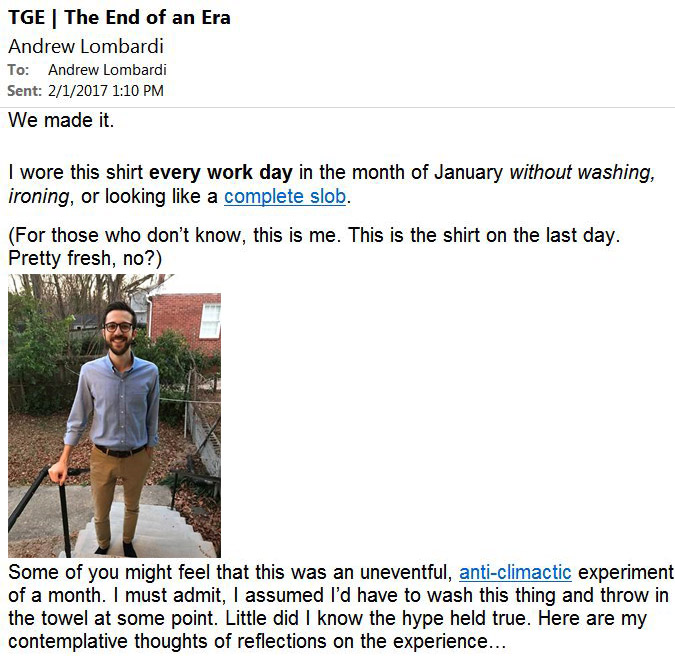Minimalists get the asshole/pretentious/rich white guy/condescending label pretty frequently. So, before you start telling everyone that you're a minimalist, you'll want to read this list:
- Minimalism is a privilege of the wealthy and something that many families can't fully participate in because it's financially unsafe to declutter.
http://vruba.tumblr.com/post/45256059128/wealth-risk-and-stuff Minimalism actually encourages more consumption. "This new minimalist lifestyle always seems to end in enabling new modes of consumption, a veritable excess of less. It’s not really minimal at all."
https://www.nytimes.com/2016/07/31/magazine/the-oppressive-gospel-of-minimalism.htmlThe "best minimalists", if there is such a thing, are probably the guys not talking about minimalism. Minimalists like to quantify how minimalist they are and then brag about it. 100 possessions, 26 pieces of apparel (oops), specific purchasing criteria, etc. (Quick tip: Instead of identifying yourself as a minimalist, an alternative would be to say that you're interested in minimalism or working on decluttering your life, physically and mentally.)
Minimalism is trendy, and trendy movements and their leaders can be annoying. The Minimalists were in town on their Less is Now tour and I was lucky enough to get a seat at their sold out show. Overall, The Minimalist's message of living simply is good for the world, but the deafening self-promotion (check out our NETFLIX documentary, listen to our podcasts, buy our books) dilutes their message. Eventually the Minimalists and other bloggers in the space run out of content and digress into the blackhole of self-help.
https://www.reddit.com/r/minimalism/comments/6g10y1/i_hate_the_minimalists/- Minimalists are condescending. "There are a million variations – fitting all your belongings into a single box, small-house or van living, radical de-cluttering, extreme purges of technology or social activity, etc – but they all hold the same vague, usually unspoken level of superiority." (Warning: this journalist got pretty creative with her anti-minimalist arguments. Comment section is pretty entertaining though.)
https://www.theguardian.com/lifeandstyle/2017/mar/04/minimalism-conspicuous-consumption-class - Whether you know it our not, the era and environment shape your perspective on owning things. "Kondo says that we can appreciate the objects we used to love deeply just by saying goodbye to them. But for families that have experienced giving their dearest possessions up unwillingly, “putting things in order” is never going to be as simple as throwing things away. Everything they manage to hold onto matters deeply. Everything is confirmation they survived."
https://www.theatlantic.com/entertainment/archive/2016/03/marie-kondo-and-the-privilege-of-clutter/475266/








